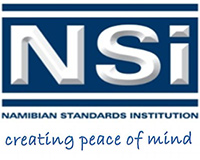About WTO/TBT
The World Trade Organization is the global international organization that deals with the rules of trade between countries, an organization that defends trade interests. The WTO provides a forum for governments across the world to negotiate trade agreements aimed at reducing obstacles to international trade and ensuring a fair trading for all. The WTO is a place for governments to settle trade disputes – under a system of trade rules. Principally, the World Trade Organization is where member nations’ governments try to resolve trade problems that they might have with each other.
At its heart are the WTO agreements, negotiated and signed by the bulk of the world’s trading nations to ensure that trade flows smoothly and freely as possible. Among others, the WTO aims to support producers of goods and services, importers, and exporters conduct their business fairly. Administering and monitoring of WTO’s agreed rules for trading and trade-related intellectual property. Monitoring and reviewing members trade policies and ensuring transparency of regional and bilateral trade agreements. Building capacity of developing country by prescribing special treatment.
Technical regulations and standards
Technical regulations and standards are important, but they vary from country to country. Having too many different standards makes life difficult for producers and exporter. If standards are set arbitrarily, they could be used as an excuse for protectionism. Standards can become obstacles to trade.
Technical Barriers to Trade (TBT) is a government-imposed restriction on a free international exchange of goods or services. Technical regulations, standards and conformity assessment procedures are all defined terms under the Agreement: Technical regulations, measures with which compliance is mandatory. Standards are measures with which compliance is voluntary.
Conformity assessment procedures are procedures used to determine that relevant requirements in technical regulations or standards are fulfilled.
Technical Barriers to Trade (TBT) Agreement aims to ensure that technical regulations, standards, and conformity assessment procedures are non-discriminatory and do not create unnecessary obstacles to trade. At the same time intend to ensure that regulations, standards, testing and certification procedures do not create unnecessary or disproportionate obstacles.
Furthermore, the agreement recognizes WTO members’ right to adopt standards considered applicable and strongly encourages members to base their measures on international standards as a means to facilitate trade. The agreement also encourages countries to recognize each other’s procedures for assessing whether a product conforms.
n addition, the agreement sets out a code of good practice for both governments and non-governmental or industry bodies to prepare, adopt and apply voluntary standards.
To ensure that this information is made available, all WTO member governments are required to establish national enquiry points to keep each other informed.



